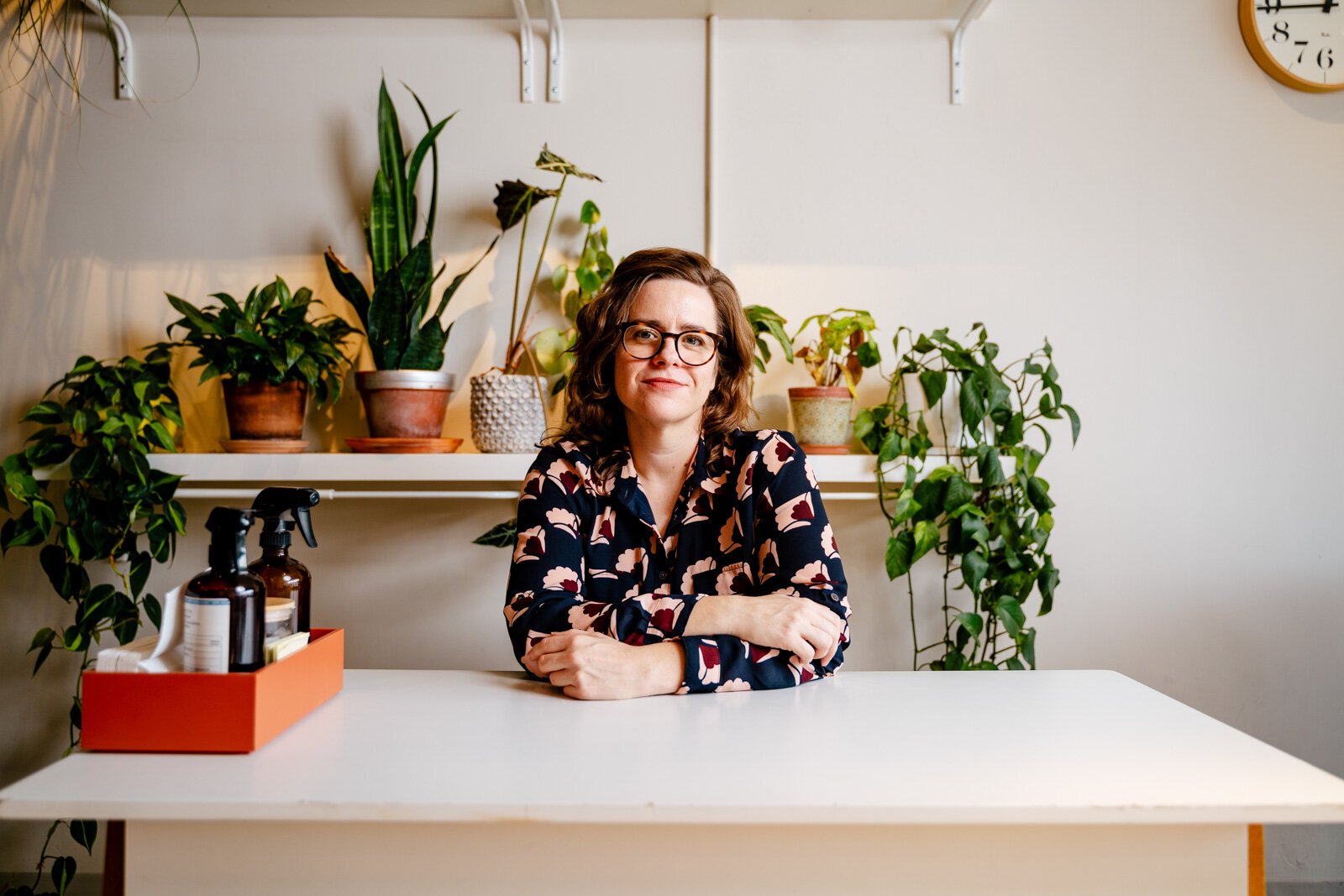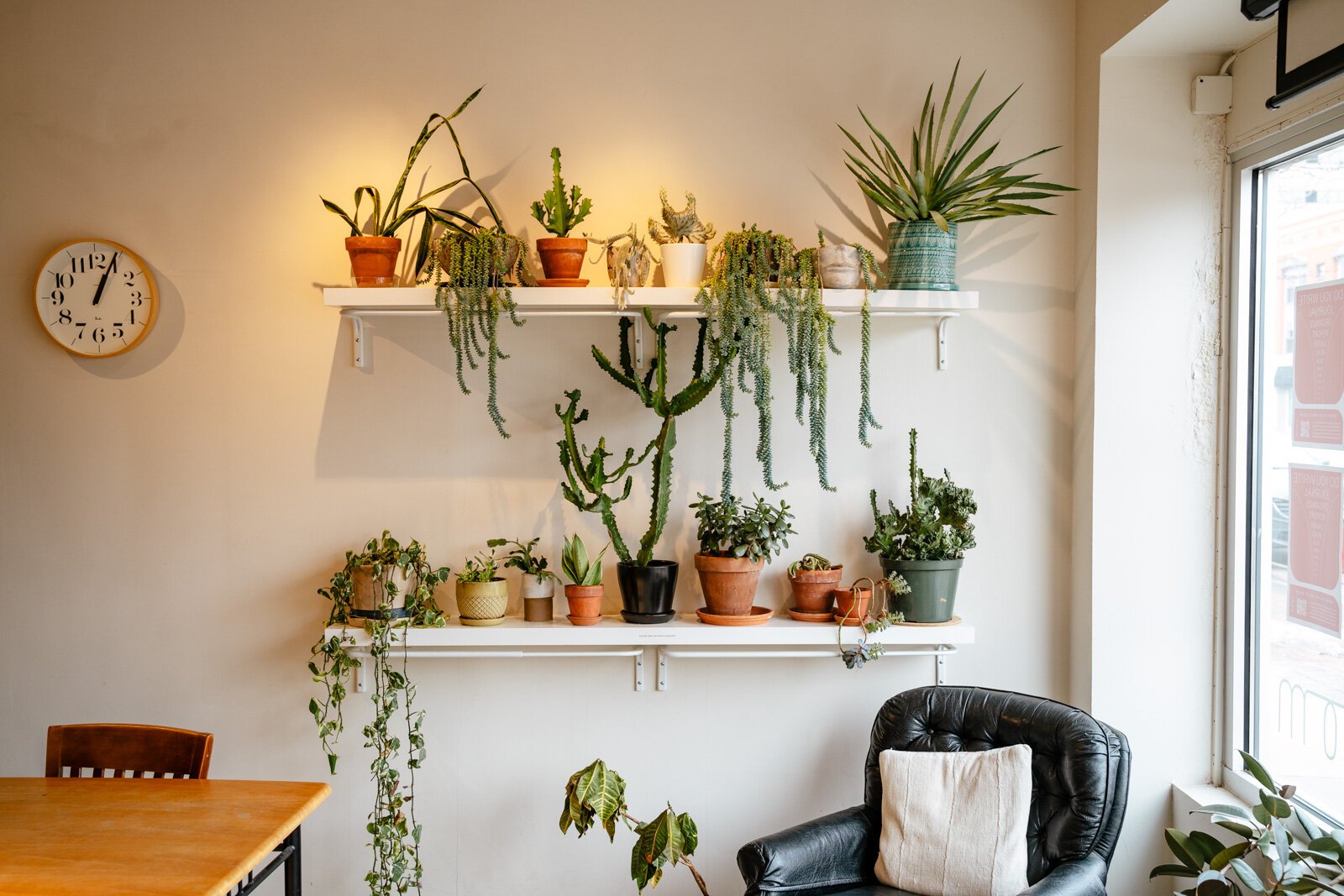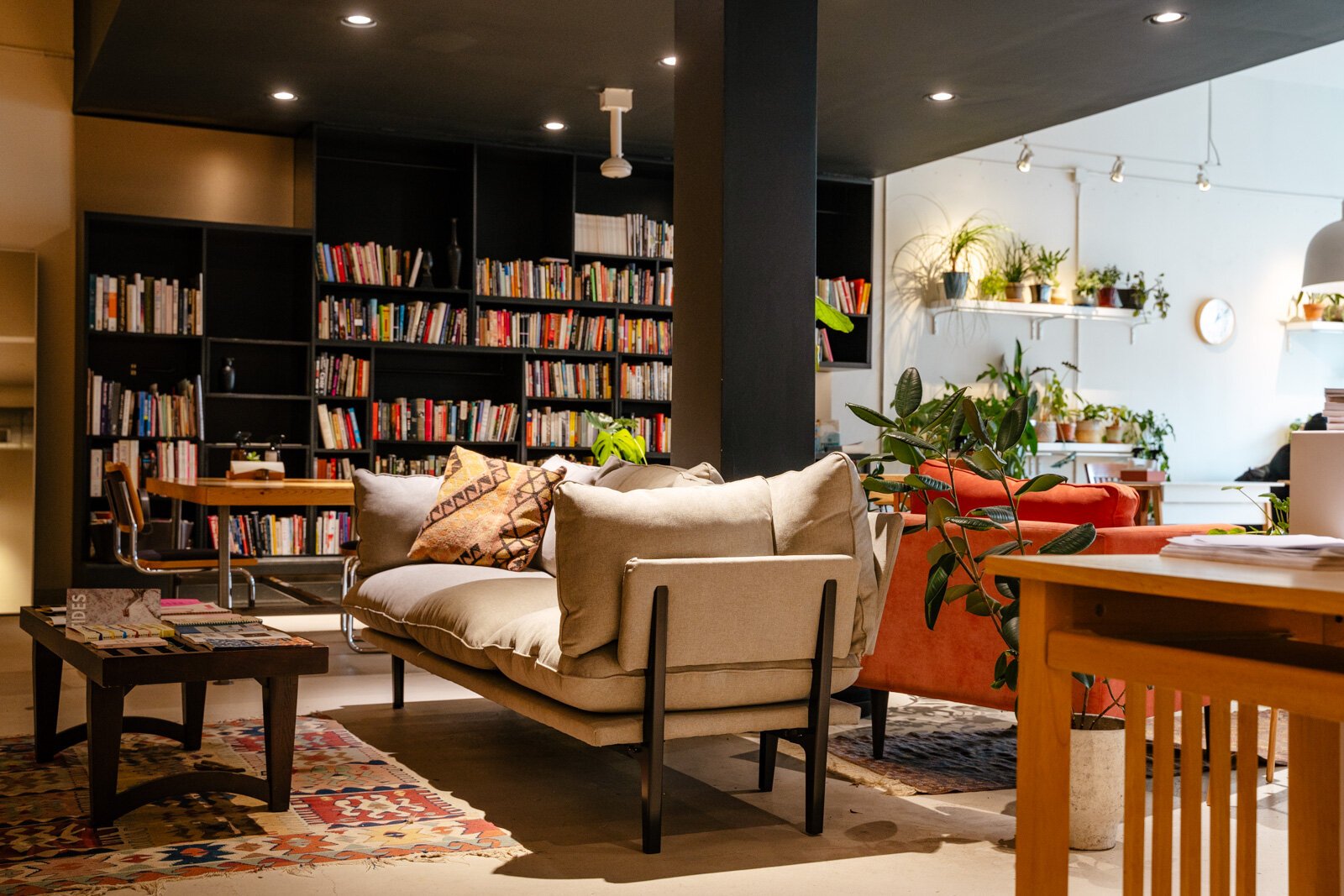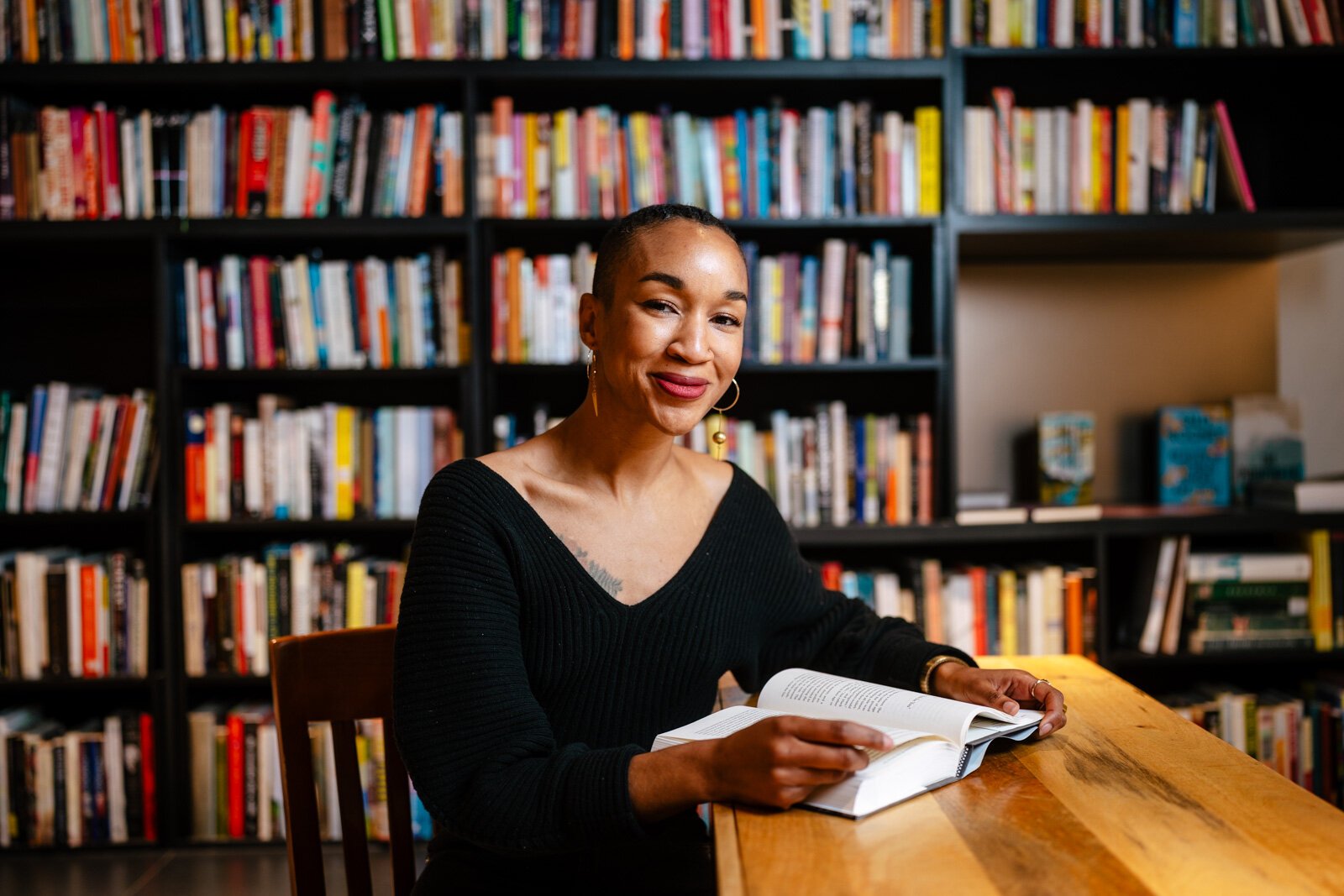Room Project uplifts women and nonbinary creatives through community and collaborative leadership
“If you talk to women in journalism, women in publishing, I don't know anyone who doesn't have a story about an editor or a colleague who they thought was interested in encouraging them in professional terms, only to find out their interest was sexual or exploitative," says Room Project Founder Christin Lee. Here's how she and other womxn are changing the space.
Moving across the country in the middle of a pandemic is no small adventure. When Michaela Ayers relocated from Seattle to Detroit in the Spring of 2021, inspired by vivid dreams and a growing intuition, she searched for a “space for belonging.”
As a Black woman, a writer, a creator, an educator, and a hard conversation facilitator, that space needed to be wide enough to embrace her passions but knit together in ways that would also provide intimacy, community, and connection.
That energy you have, someone said to her as she was settling in, reaching out to folks, sharing about herself; you can find a similar vibe at a little spot in the New Center neighborhood.
Located on Woodward Avenue, Room Project is a creative space for women and nonbinary writers and artists to work individually and collaboratively. It’s a physical and, since the pandemic, often virtual community where acceptance, safety, and value around these identities are native to its organizational mission.
“I think about identity a lot as a woman,” says Ayers, “and especially as a Black woman. As somebody who moves through a world where negative stereotypes are projected onto me often, it’s really nice to go into a space where there’s already an understanding of my worthiness. Room Project is like an open invitation to be myself without needing to potentially perform for other people.”
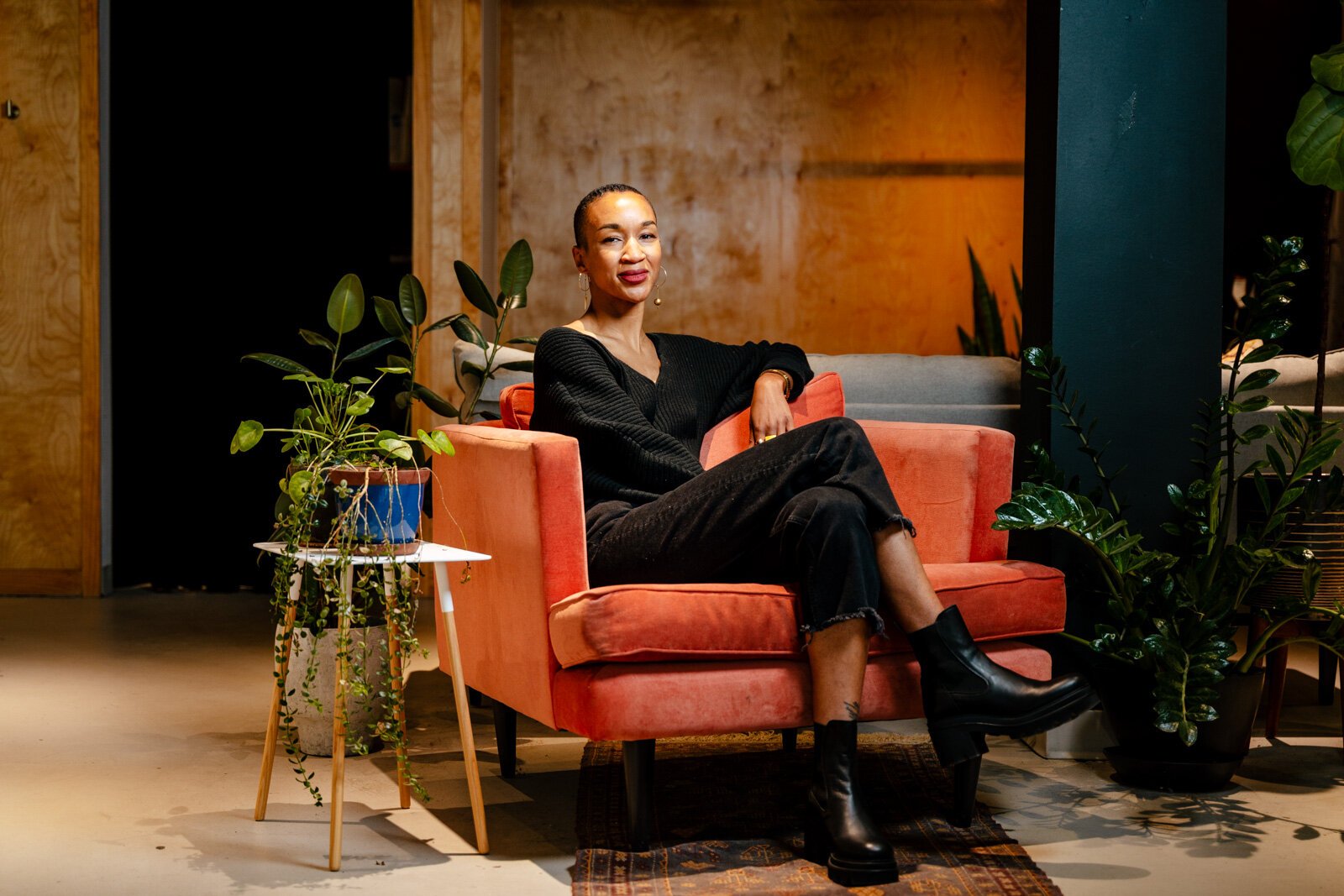
That’s an invitation every identity needs, she says, especially women, transgender women, and nonbinary folks, who are often seen as less than in a cisgender man’s world. Establishing this worthiness in a community nurtures an authenticity in people’s work and interactions that are hard to find, she adds, especially in the corporate setting.
“Employees are being asked to bring their full selves to work without acknowledging that a lot of discrimination happens,” she says. Through her social impact organization, Nourish, Ayers works to advance antiracism education inside organizations and communities. Her professional writing centers on helping people engage in hard conversations and begin to identify and unravel racism within their thoughts, habits, and behaviors.
On a personal note, writing makes Ayers feel most connected to herself. She’s currently working on a podcast called “Black Her Stories,” where she talks with Black women writers, artists, and entertainers about their creative practice. Getting to know other artists and having access to different types of thinkers and ideas is helping to bring her project to life. The quiet space at Room invites research and writing. Collaborating with others on creative projects gives her a sense of belonging amid isolating COVID-19 days.
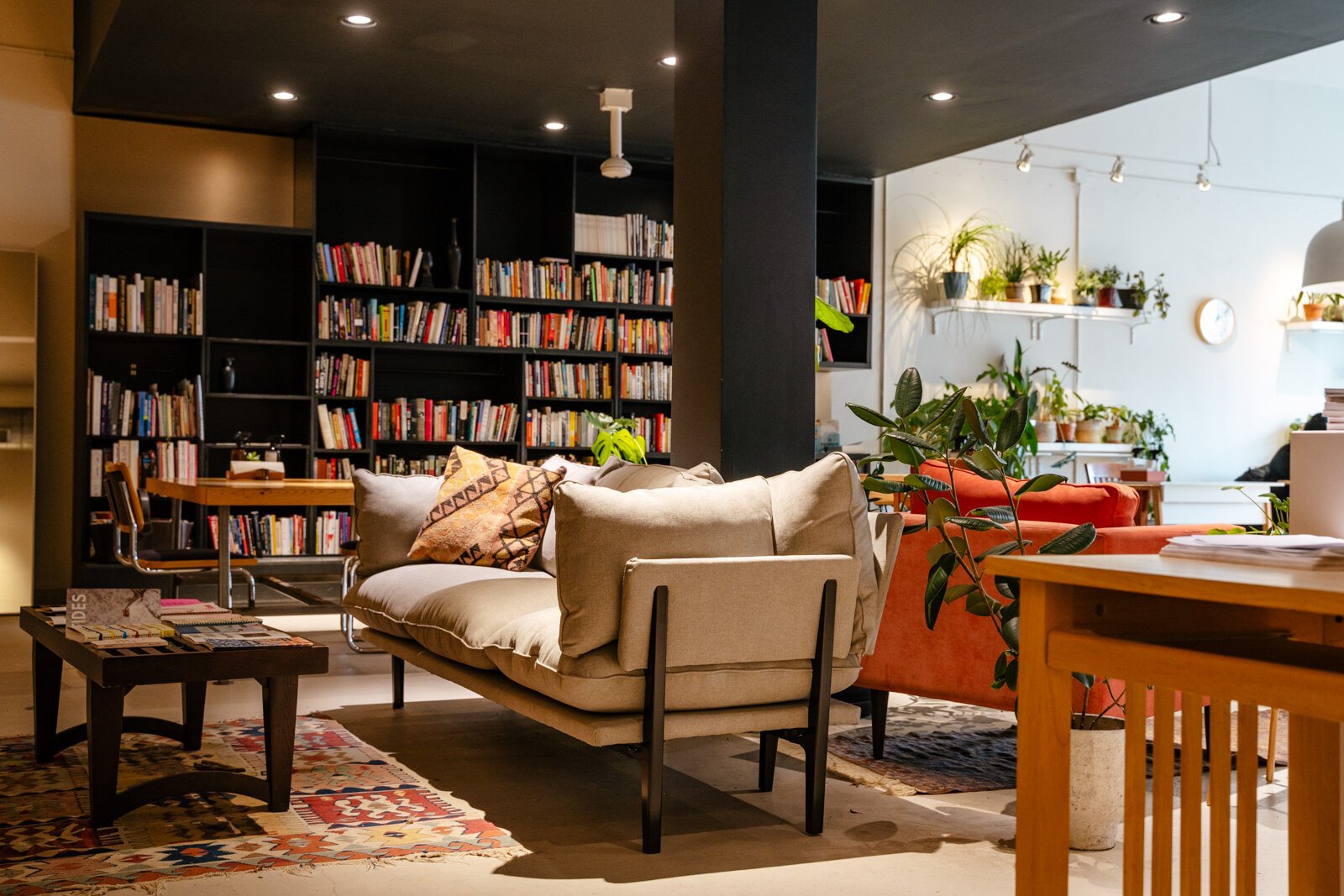
This was the idea (minus the global pandemic) when founder Christin Lee, a writer from L.A., moved to Detroit and opened Room Project in 2018. She’d recently finished grad school in Ann Arbor and was meeting women throughout the city who, like herself, had literary ambitions but lacked community, a focused workspace, and creative resources. In light of the Me Too movement, deep-seated misogyny exacerbated in the Trump era, her own experiences, and those she heard from other writers, she felt certain Room should also be a sanctuary.
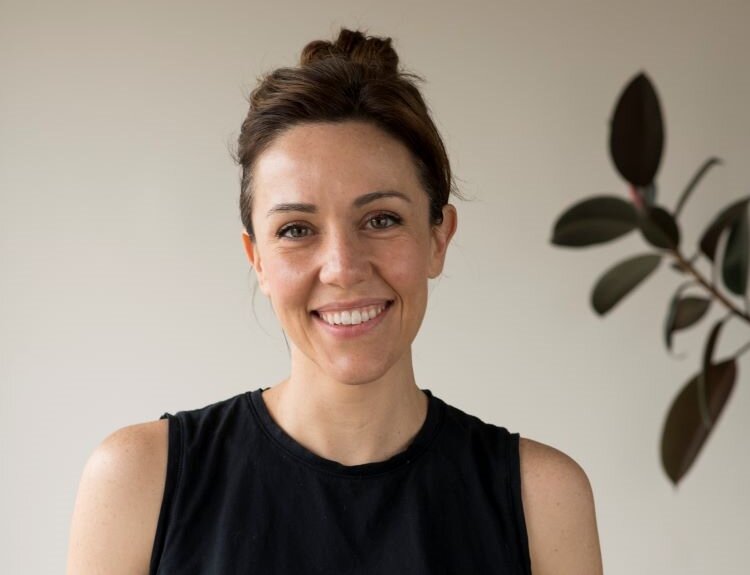
“If you talk to women in journalism and women in publishing, I don’t know anyone who doesn’t have a story about an editor or a colleague who they thought was interested in encouraging them in professional terms, only to find out their interest was sexual or exploitative,” Lee says.
“When you open a space for women, you want to stay in the narrative of bold creation, risk-taking, and celebration. It’s not positive to say the experiences we’ve had with a lot of men who are writers have made us simply want to hide,” she says, “but it’s a reality.
Then you add the layer of people who are trans or nonbinary and the levels of scrutiny, violence, prejudice, and unwanted attention, or even the extra emotional labor it takes just to create space for yourself. So why not just put a door between all that and us?”
She sometimes wonders how much of a balm it is but feels encouraged when she sees relationships begin to form and organization start to happen naturally. “That’s where the unadulterated strength comes from,” she says. “I don’t question the efficacy of that part of Room Project because I’ve seen it. It works, and it’s good.”
At a time when women are reported to be disproportionately carrying COVID-19 burdens related to things like caregiving, distance learning, and job loss, spaces that inspire and nourish their self-employment, mental health, and sense of community may be needed now more than ever.
And it’s an experiment with creative exclusivity, Lee says, rather than a judgment on cisgender ole. Males in the community and writing world also celebrate what Room has to offer. Though its membership and co-working space is limited to certain gender expressions, its events, workshops, readings, and seminars are open to all.
“Our primary mission is supporting and celebrating women and nonbinary folks, but we’re interested in literary and artistic expertise,” says Kelsey Ronan, operations director at Room. Male writers have read their work in the space and occasionally participate in workshops. A few men donate financially to the project as well, but it is women, nonbinary and transgender individuals who are mainly responsible for its sustainability.
Room’s regular donors help to bolster its sliding-scale membership option for those in need. Committed to being “inclusive, intersectional, and accessible,” monthly membership fees of $50, and $30 for students, haven’t been raised since the doors opened. They include 24-hour access to the space, its color printer, hot beverages, numerous literary subscriptions, and workshop discounts. A $10 level was added during COVID-19 for “friends” wishing to support or join the creative community but who don’t need a co-working space.
There’s not a mold for the creatives who regularly enjoy the space. “We have freelancers who work here every day, photographers who sit and edit their photos, people publishing zines, fine artists, screenwriters, novelists, and poets,” says Ronan. “Lately, there’s been a lot of creative fiction going on. It’s like all the stuff that kind of has no place at a WeWork or with the “girl boss” entrepreneur sort of thing. It feels more intimate to me.”
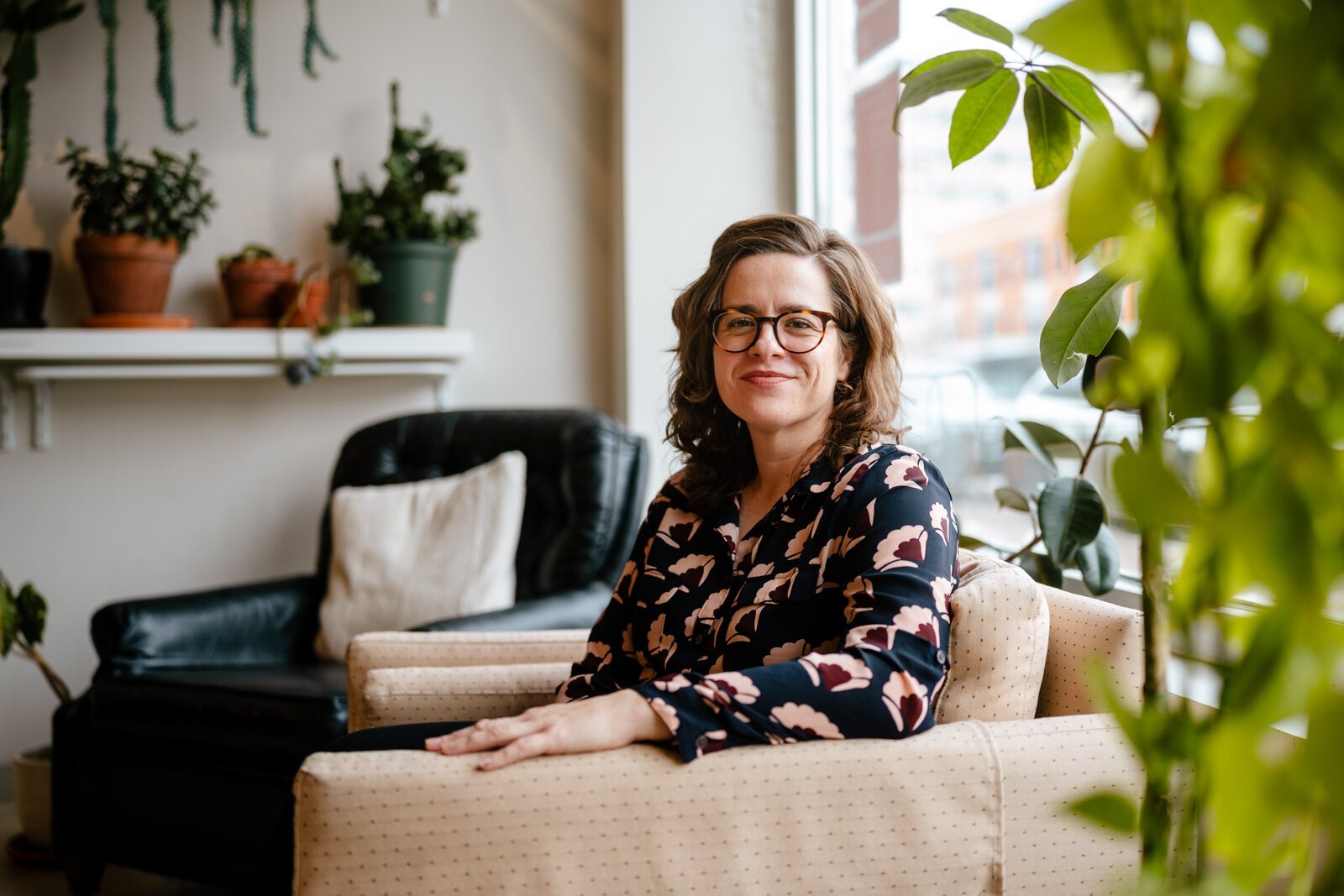
When she first visited Room in 2018, sparked by a word-of-mouth connection, Ronan felt that intimacy immediately. Lee took her on a walk around the block and asked about her life, her interests, and what she was working on.
“All the stuff that nobody asks,” Ronan says, “It was a feeling of being seen.”
She was relatively new to Detroit at the time and hadn’t made friends yet or found where the artists and writers were hiding. “I was given the code to this place where people were working on interesting stuff, a hub for workshops, readings, weekly events, membership meetings,” she says, “great opportunities to both honor the personal work I was doing and to meet others.”
The project she was drafting, a Flint-based novel called “Chevy in the Hole,” comes out mid-March and has already been hailed as “profoundly honest,” “stunning in scope,” and “a testament to the long reach of history, and family, and the salvific power of love.” The debut novel was almost entirely written at Room over the past several years, its journey making Ronan wonder sometimes if she knew how to write at all.
“Having that space to vent to really smart writer folks and people who’ve written books, published books, are also in the process of writing a book was invaluable to me,” she says.
She’s hoping to host a launch event at Room for her novel if it feels safe to have people masked together in the space, she says. But like all things COVID-19, only time will tell. The project’s events and workshops have been virtual since last fall.
Membership at Room, which was devasted by the pandemic, is nearly back to pre-COVID numbers. Its co-working space, which boasts new HEPA air purifiers, is currently open to 10 members at once. The safety protocol includes reduced desks, masks, rigorous cleaning, and contact tracing. Lee says it was a slow rebuild, and she wasn’t sure if they’d make it through, but by the fall of 2021, people were showing appetite and energy for a creative community again.
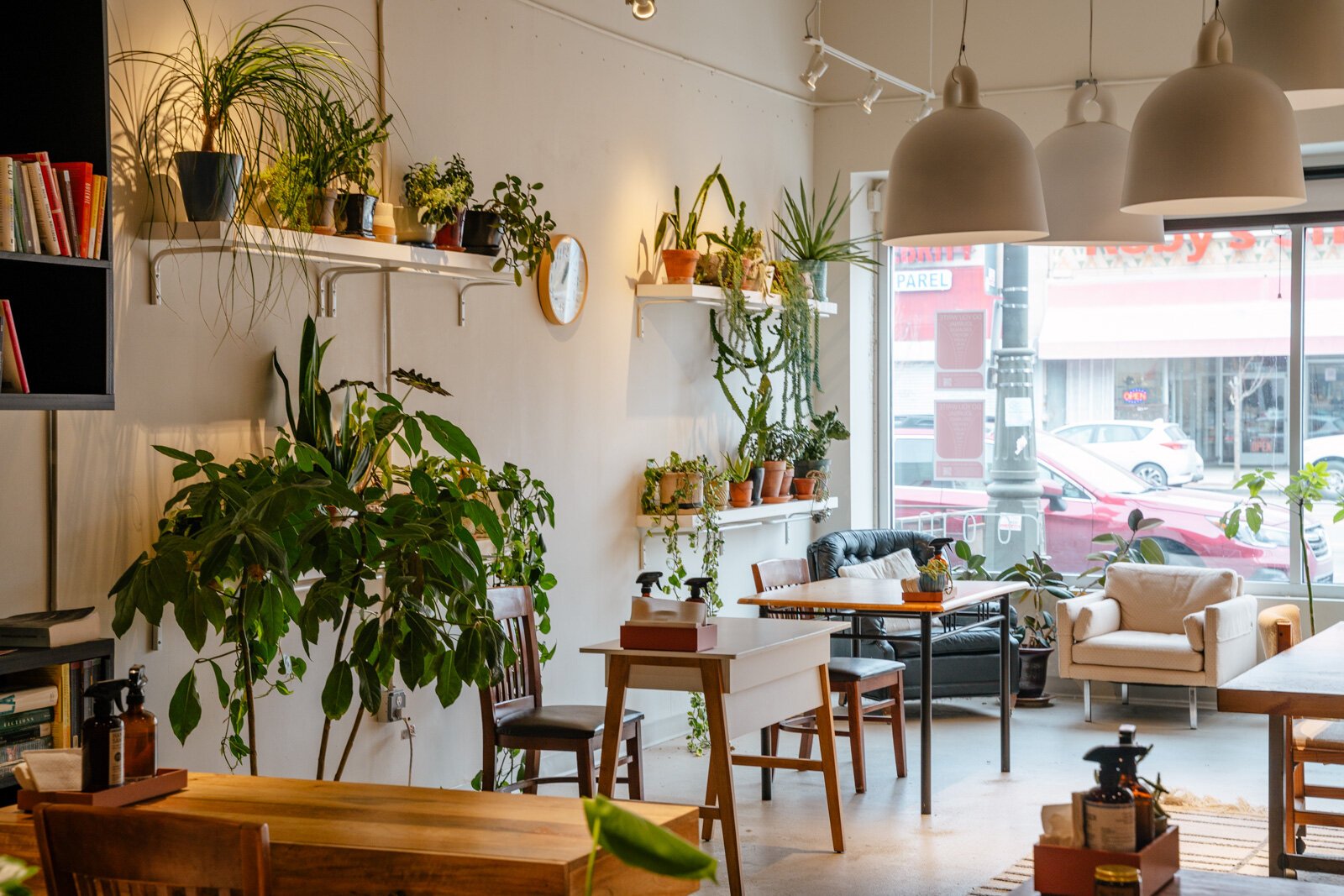
She’s excited to roll out new fellowships and mentoring for local BIPOC writers as well as a fresh new round of workshops. The member survey Room put out last fall highlights the need for short-term workshops rather than typical intensive classes that call for an 8-week commitment.
“We’re trying to make the programming even a bit more accessible, given how burdened women and nonbinary people’s schedules are,” Lee says, “understanding there’s a capacity limit right now, and working with that as that starts to build.”
She’s also thrilled to see decisions around vision, programming, and policy made by the new steering committee at Room Project. The group, which includes Ayers, comprises eight majority BIPOC women with leadership gifts. Each has been especially active in Room’s community and is committed to moving the organization forward. Over a year ago, Lee shared her strong desire to decentralize Room’s decision-making power.
“Justice and equity have been the most crucial aspect of the project,” she says. “Our programming has always been foregrounding BIPOC women and LGBTQ+. But the underlying factor was that I was organizing all that, and there are just hard limitations. I thought, if I do it as quietly as possible and try to do a really, really good job, it’ll all be fine. I can’t tell you how dumb that notion is on so many levels.”
Not only is leading an organization impossible to do yourself, she says, after years of exhaustion, but the “interesting complications, the creativity, and new avenues seeing the needs you didn’t even know were needs, it can only happen when you have a lot of people at the table thinking about the same thing.” Her biggest concern was not having the budget to offer living wages that honored the committee members’ talents and expertise.
“I had to submit to the truth of the matter, which is sometimes people are ready to volunteer, they’re ready to show up,” she says. “I had a dinner and asked the people I know deeply care about Room. We needed help, I needed to step back, and things had to change. Everybody said yes. I’m in a moment of really deep gratitude,” she says, “I get to see Room grow beyond something I’ve imagined.”
Ayers is excited to help nurture that growth. She’s long been interested in cooperative structures that incorporate many voices. “We’re trying to flatten the hierarchy. We’re trying to share power as women,” she says, “and that feels really important. It’s something valuable to the Detroit community but also outside of this location. Can we inspire other co-working spaces to try something like this?”
She’s also interested in sparking intergenerational conversations. In terms of programming ideas, she’d like to see a workshop that inspires diverse ages to collaborate on storytelling. Incorporating many unique perspectives, she says, could make a meaningful community event.
Ronan also likes the idea of bringing out people’s stories. Many folks who write are afraid to call themselves writers, she says, or to join a creative community. As someone who often does new member orientations at Room, she hears nervousness around this frequently.
“I think if you do it, and you care about it,” she says, “why aren’t you a writer? We support you. You’re at the table, same as the person who’s in The New York Times this week, same as the person who has a great new essay coming out, or the poet who’s a couple of books into her career.”
We see you,” she says emphatically. “You’re a writer too.”
